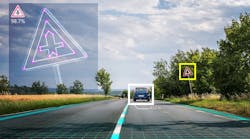Automotive Software Advances Bring the Industry Closer to Autonomy
What you’ll learn:
- How the emergence of connected vehicles is accelerating automotive software development.
- The impact of IoT and AI technologies on automotive software.
While the concept of self-driving cars or driverless cars was once found only in science fiction, technological innovations are pushing automotive software and autonomous vehicles closer to reality. Technology and automotive companies alike are a major part of this transition, with many organizations targeting efforts toward achieving a fully autonomous industry in the future.
For instance, in 2016, various companies announced a string of strategic initiatives, such as Uber’s acquisition of self-driving truck firm Otto, as well as its vehicle development and production partnership with Volvo. These initiatives are just a small part of the flurry of vehicular autonomy-related investments that are dominating the automotive industry. This disruption has, in turn, provided a significant boost to the automotive software market in recent years.
Several trends characterize the evolution of software for vehicles, from the emergence of advanced driver-assistance systems (ADAS) to the rising complexity and advanced features of in-vehicle infotainment (IVI) systems such as head-up displays, camera-based mirror replacements, and sophisticated digital instrument clusters, to the electrification of various automotive operations. And these trends are changing rapidly to accommodate increasingly more demanding automotive architectures and design needs.
Emergence of Connected Vehicles a Step Toward Autonomy
Of course, the achievement of vehicular autonomy wasn’t an overnight process. Thus, automakers are concentrating on steps to achieve this goal by facilitating a gradual transition to more technology-based mobility solutions. One of the most prominent of these steps is the introduction of connected vehicles.
Connected-vehicle technologies are rapidly establishing themselves as a core part of the modern automotive landscape. Startup and established players in the automotive industry are working with prominent vendors to integrate robust connectivity services in their vehicles. One key differentiator for connected cars involves automotive software solutions, giving companies developing vehicle-to-everything (V2X) software an edge in this space.
For example, Continental recently introduced an online platform designed to standardize and automate the development and integration of software for vehicles. Dubbed the Continental Cooperation Portal, the solution’s intent is to help build in improved cost-effectiveness, superior software quality, and the ability to integrate increasing amounts of car software in future generations of vehicles.
Massive Upgrades to Automotive Tech
In their quest for autonomy, car manufacturers triggering major advances in fields such as electric mobility, digitalization, and hybridization, among others. These changes have fueled a shift in automotive software trends in an effort to adapt to technological developments.
For instance, license-plate recognition (LPR) software is an emerging trend. Designed to identify vehicles based on their license plate, the novel technology is applicable to myriad security and traffic control applications, including smart traffic and access-control systems.
Continued development has significantly improved the stability and accuracy of LPR software, with diverse camera angles and positions as well as better resistance to different weather conditions, facilitating 96.5% accuracy in these systems. For instance, Sighthound Inc. introduced a new ALPR automatic license-plate recognition (ALPR) software, solutions, and services suite designed to identify license plates from more than 100 nations, states, and territories. The solution also includes a web portal for searching or viewing ALPR results in real-time.
IoT’s growing role in the automotive domain is also driving innovations in software for vehicles. Artificial-intelligence technologies such as deep learning, computer vision, machine learning, etc., are leading the charge in the industry’s transformation to robotic automation. These technologies play a key role in self-driving car guidance, driver assistance, and fleet management to enhance efficiency in safety and other aspects like vehicle inspection and insurance.
To illustrate, RevitsOne, a startup based in India, has developed an AI-powered automotive software solution for fleet management at varying scales. The vehicle-management system offers comprehensive insights related to running vitals, health information, and speed. Furthermore, drivers gain substantial benefits from features such as the Voicera ID virtual assistant, designed to keep them up to date on vehicle-related information. There’s also an onboard speed recorder that helps limit speeds to prevent potentially dangerous driving behaviors.
